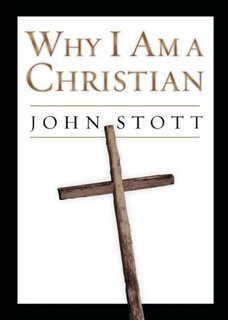 Over the years, I have grown more and more uncomfortable defining myself as a "Christian". Not because I no longer confess the faith; rather, because the faith I confess seems a little limited by this exact word, in this context. Maybe because all the recent political debate, maybe because of a growing awareness that Christianity's plurality makes the term too vague. For whatever reason, the word has become a banal description of what I seek to be, and what I think "Christians" should seek to be. (Often failing, but still seeking.)
Over the years, I have grown more and more uncomfortable defining myself as a "Christian". Not because I no longer confess the faith; rather, because the faith I confess seems a little limited by this exact word, in this context. Maybe because all the recent political debate, maybe because of a growing awareness that Christianity's plurality makes the term too vague. For whatever reason, the word has become a banal description of what I seek to be, and what I think "Christians" should seek to be. (Often failing, but still seeking.)It strikes me that the Christian response to Postmodernism should be one of careful delineation from the culture. In this sense, the term "Christian" doesn't help much as it is just another of many cultural labels. At least to those of us from European backgrounds. Obviously, for Christians in Asia or the Middle East, the label would suffice to let everyone know the religion of that person, and I should note here that a majority of the world's Christians are not from Western traditions.
It's not our fault that the word has lost its bite. The history of Christianity is one that involves a virtually incestuous church/state association. Bishops were princes, Medici's were popes, church attendance was often mandatory, and the church was geographically and figuratively the center of city/town life. So to be a "Christian" was an assumption. Not that millions weren't genuinely faithful; it was just a way of life. My understanding of the origin of the term was that it was derogatory. Those who were followers of Jesus were called "Christians" in the Roman context, and there was nothing complimentary about it in such a context. It was a slight, a sign of inferiority or weakness, sort of a, "Oh, there go those Christians again." Characteristically, early Christians took on this term of derogation and delighted in it. After all, the humble shall be exalted and the exalted shall be humbled.
When Constantine became a Christian in 312, however, everything changed. For the next 1,700 years, the faith would become virtually synonymous with the West's political and cultural identity. The advantage, obviously, was that many people over the centuries were Christian. This is, in some ways, a good thing from my perspective. Christianity as part of the culture led to advances in education (universities), healthcare (hospitals), and it provided a backbone of morality for millions.
The flip side was (is) that the faith was diluted at best, and corrupted at worst. The faith life of the believer was a state matter for many Europeans. Indeed, it still is. In many nations, to be able to receive the sacraments of the church, one must admit to being a believer to the state and then proceed to pay a hefty tax. It's a lot cheaper to simply say you're not a believer, if you think you can live without the sacraments. Yet, most of Europe would still say that they are "Christian".
I wonder if Americans were asked in a census if we were Christian what our response would be? Would it be the same if we were asked if we were "Followers of Jesus"? How about "Disciples"? "Apostles"? These are the options of which the New Testament is full. Jesus never asks those around him to become Christians. (The Greek equivalent is never mentioned that I know of.) Jesus frequently asks those who are healed by him or those who come to him for advice to follow him, to be his disciple, or to be an apostle sent out on behalf of the faith.
Yet, we are able to say, and very safely at that, that we are Christian without doing any of the things Jesus actually demands simply because the label "Christian" has become such an accepted part of the culture. This is not necessarily a bad thing. None of us deserve the other three titles either. I merely want to propose a change in language so "Christians" can be clearer about who they are. I worry that this sounds like a litmus test or judgement, but it seems right to me that this is a helpful way to reclaim the original meaning of "Christian."

No comments:
Post a Comment